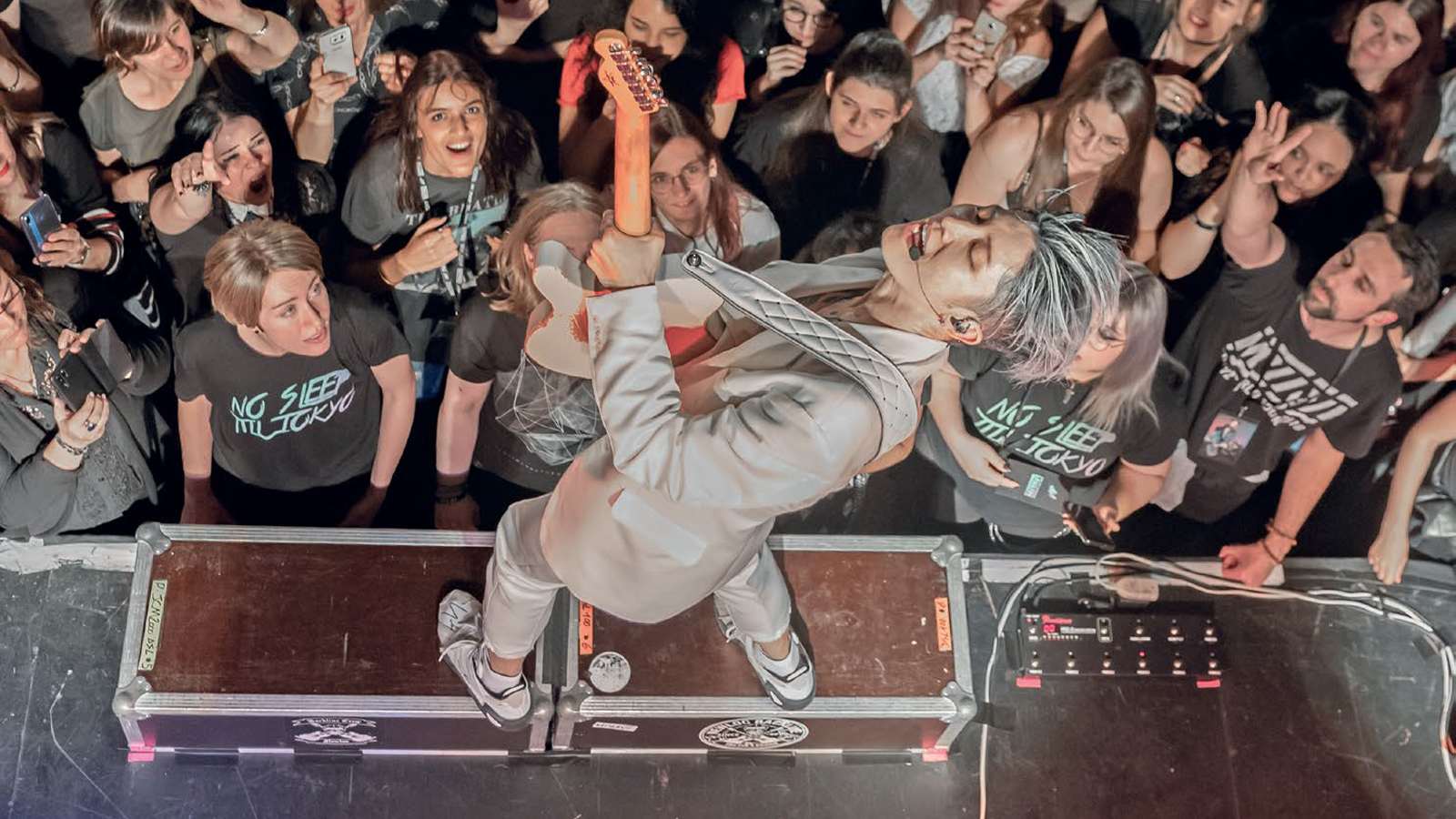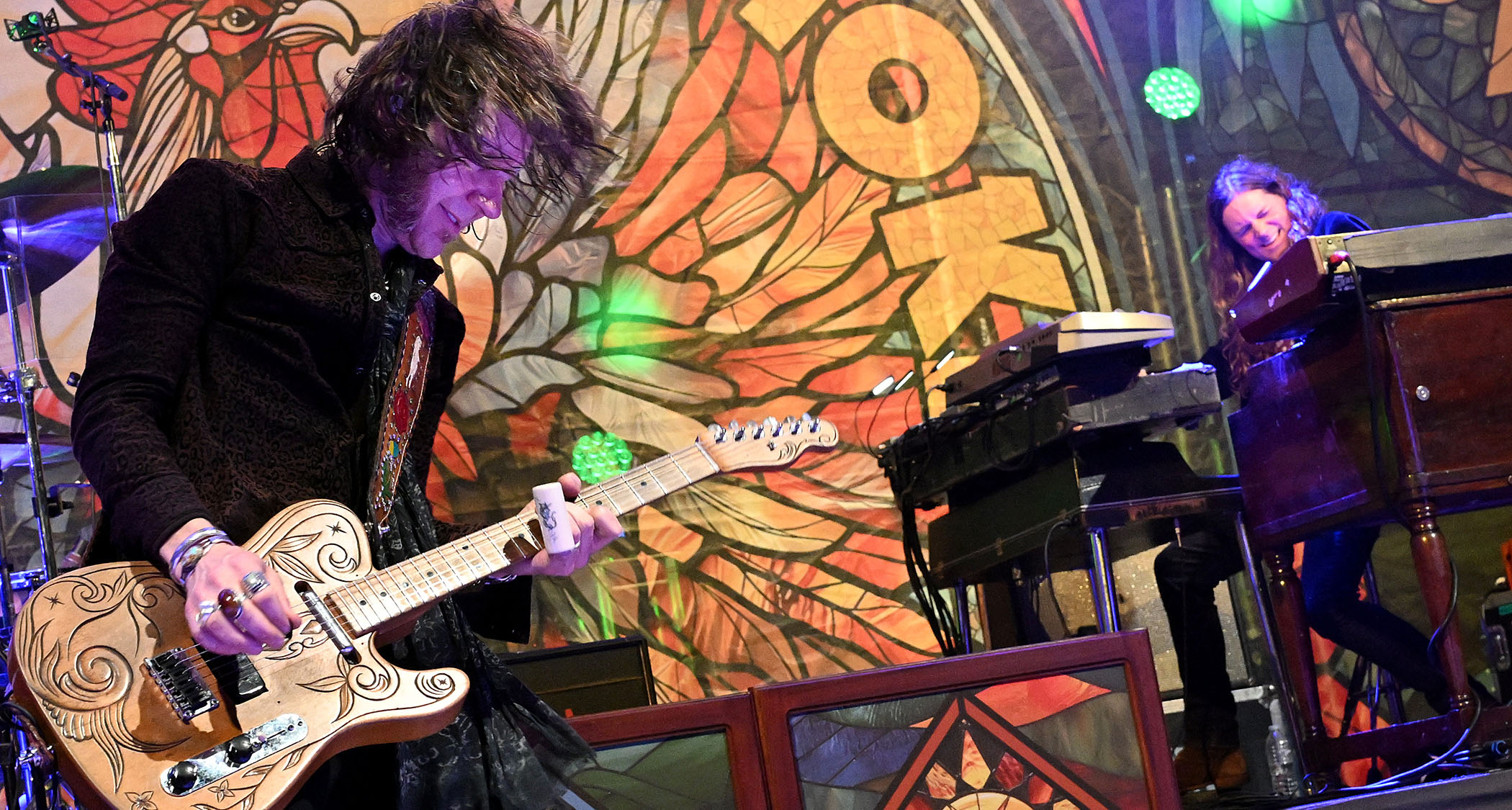MIYAVI: "I love Strats - they are sexier and like an all-around good guy, whereas a Tele is a bad guy, a rebel"
The adored Japanese guitarist on his incredible string-slapping technique and how he uses a trio of amps to cover both the high- and low-end live

All the latest guitar news, interviews, lessons, reviews, deals and more, direct to your inbox!
You are now subscribed
Your newsletter sign-up was successful
“It’s all about one hit - the first hit is everything,” says Japanese singer and guitarist Takamasa Ishihara, better known by his stage name, MIYAVI, when describing his eye- and ear-catching technique of slapping the strings.
“Like for a sumo fighter, the first hit is really important for them. That amount of energy and passion - it’s a kind of an explosion of art. For karate or sumo the first contact is really crucial, so to me, I just want to make my own tone with the first contact and have people recognize that’s MIYAVI’s tone right away.”
With 13 albums to his name and roots in Japan’s 1990s Visual Kei scene, MIYAVI has certainly carved out a niche in the entertainment world, somehow finding time in between global tours and recording hip-hop-tinged LPs like 2019’s No Sleep Till Tokyo for an acting career with roles in such high-profile films as Unbroken, Kong: Skull Island and Maleficent: Mistress of Evil.
“In the end, playing the guitar, singing, acting or studying a new language, all of them are the same. It’s about how you capture the core part and then develop the specific skill in you.”
His passionate performances have won him fans around the world, and his nimble-fingered style is arresting in its originality, yet MIYAVI is quick to give credit to other artists who’ve influenced him.
“There are other great guitarists who slap the strings, like Preston Reed. I love the world he makes,” he says. “Also, Keziah Jones, who’s a percussive guitarist. And Kaki King - and also the legendary Tommy Emmanuel. At the same time, I learned from bass players like Larry Graham and Marcus Miller.
"But my fundamental style is from the shamisen, which is a Japanese instrument used for Kabuki or traditional Japanese plays. It sounds really distinct. I just wanted to make a sound like that with the guitar.”
All the latest guitar news, interviews, lessons, reviews, deals and more, direct to your inbox!
I started thinking about how I could redefine my tone and went to all the guitar stores in Nashville and just rediscovered the Telecaster
For the most part, he creates his signature tones using a Fender Custom Shop Telecaster. “When I had a jam session with Robert Randolph, an awesome steel guitar player, in Nashville, I was blown away by his tone. It was really intense.
"I started thinking about how I could redefine my tone and went to all the guitar stores in Nashville and just rediscovered the Telecaster. I just wanted to have that attitude the Telecaster has - the bite and twang.”

MIYAVI doesn’t let tradition stand in the way of getting the sounds he wants, as he’s modded his Tele into what he calls his “cyborg guitar.” “I have a whammy bar and three pickups on my Tele and one of them is a humbucker,” he says. “To me, it’s not about history. It’s about what I want to play, and those things I put on my guitar are crucial to the tone. Especially since I’m from Tokyo - this kind of cyborg guitar is perfect for me.”
The guitarist mixes up his rhythmic slapping with crunchy, 8-bit leads that make heavy use of the whammy bar. “The whammy bar is crucial, and people say, ‘why don’t you play a Strat?’ and I’m like, yeah, I love Strats. Strats are sexier and like an all-around good guy, whereas a Tele is a bad guy, a rebel.
"At the same time, as a guitarist I wanted to sing with the guitar, so with the whammy bar, I can go between the keys. It’s really fun to swim and float between notes.”
Gear is important, but it’s just tools. It’s all about your heart and how you express yourself
When playing live he often dispenses with a bass player and splits his signal between a Marshall JCM 800, a Fender Twin Reverb and an Ampeg bass amp to provide top and bottom end.
“We didn’t have any budget to hire a bass player,” MIYAVI says. “I play with one of the best Japanese drummers, and we just didn’t need anybody else on stage. I still enjoy playing with great bass players, but two of us on stage was enough to rock the world.”
Like most players, he has a battery of effect pedals to help refine his sound. “I have a Pete Cornish fuzz, an Eventide H9 Harmonizer, an Electro-Harmonix POG2 [synth octaver], a Boss OC-3 Super Octave pedal - and that’s about it. Gear is important, but it’s just tools. It’s all about your heart and how you express yourself.”
Bruce is a freelance writer of features and interviews for Guitar World and MAGNET Magazine among other titles. He's played guitar in numerous garage bands with much better musicians who sometimes laugh at his Ovation Breadwinner.
